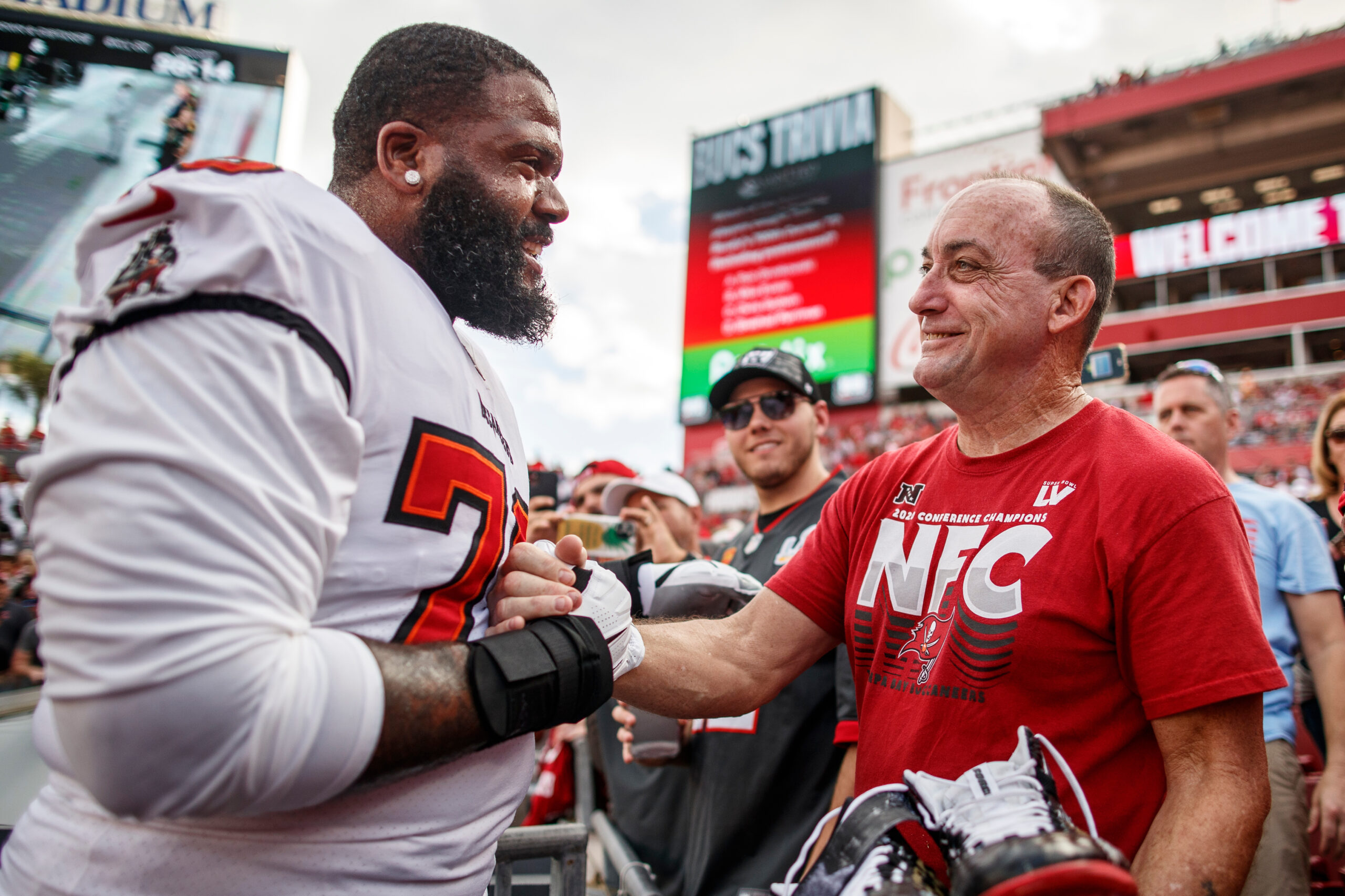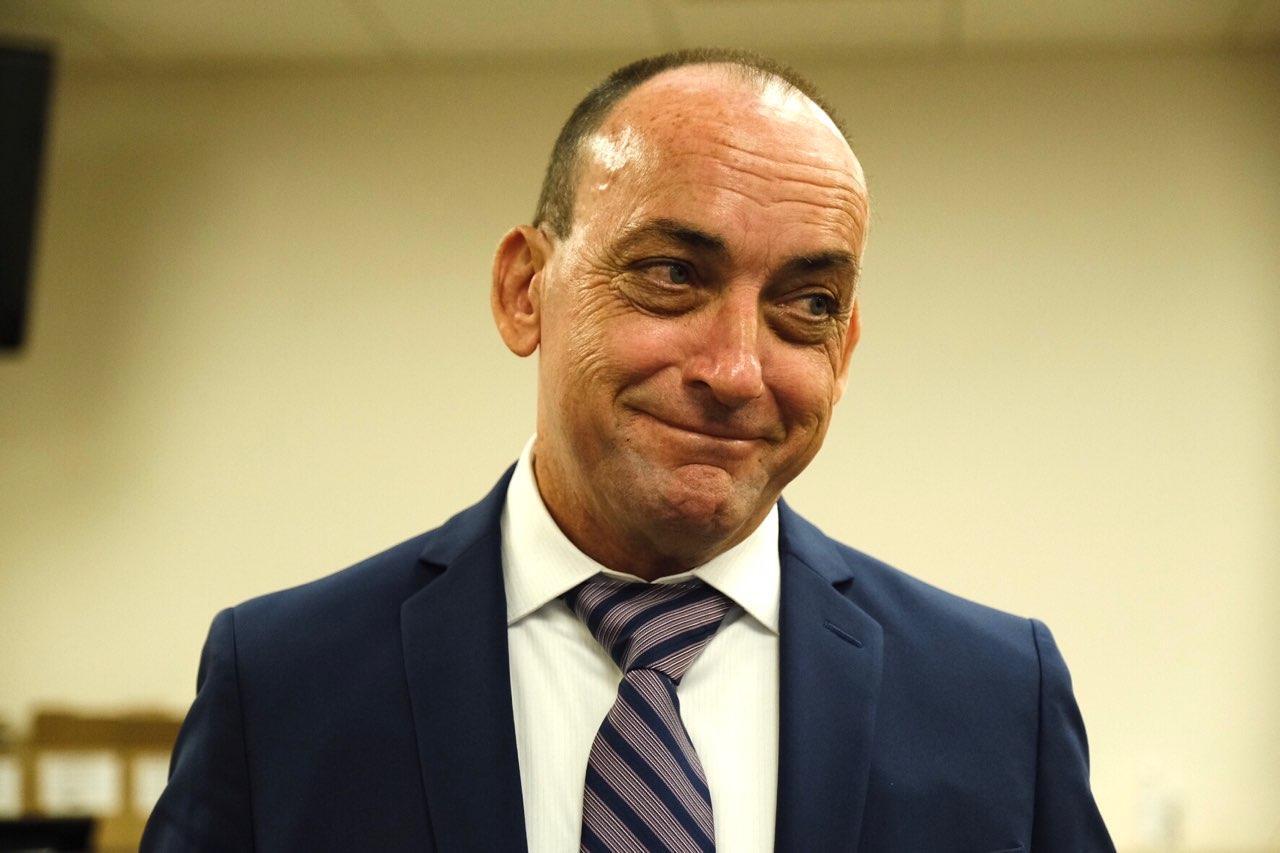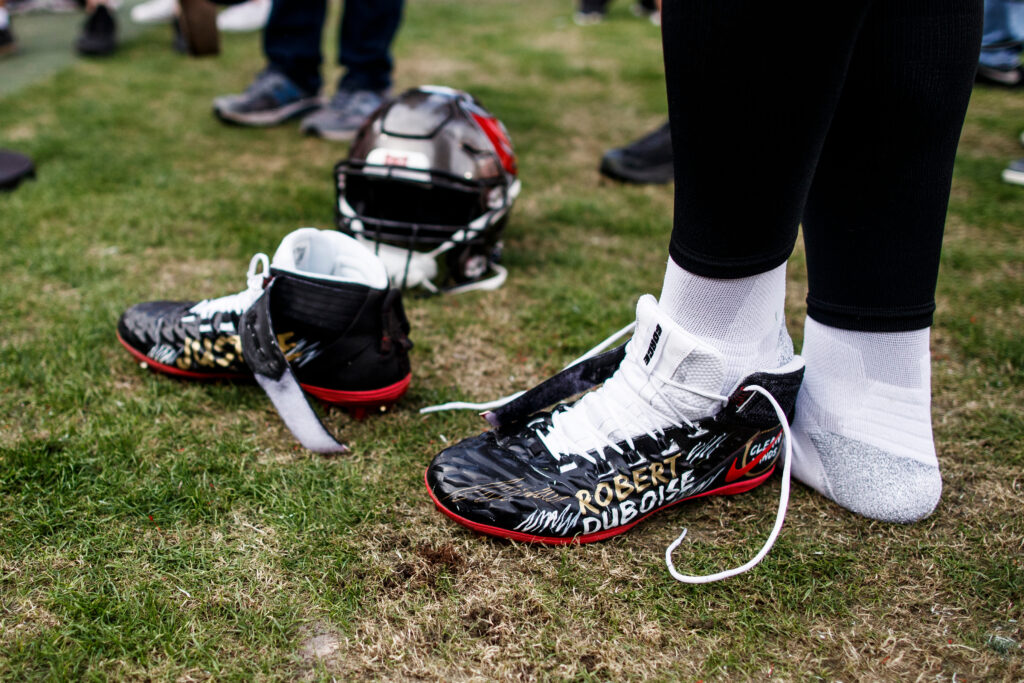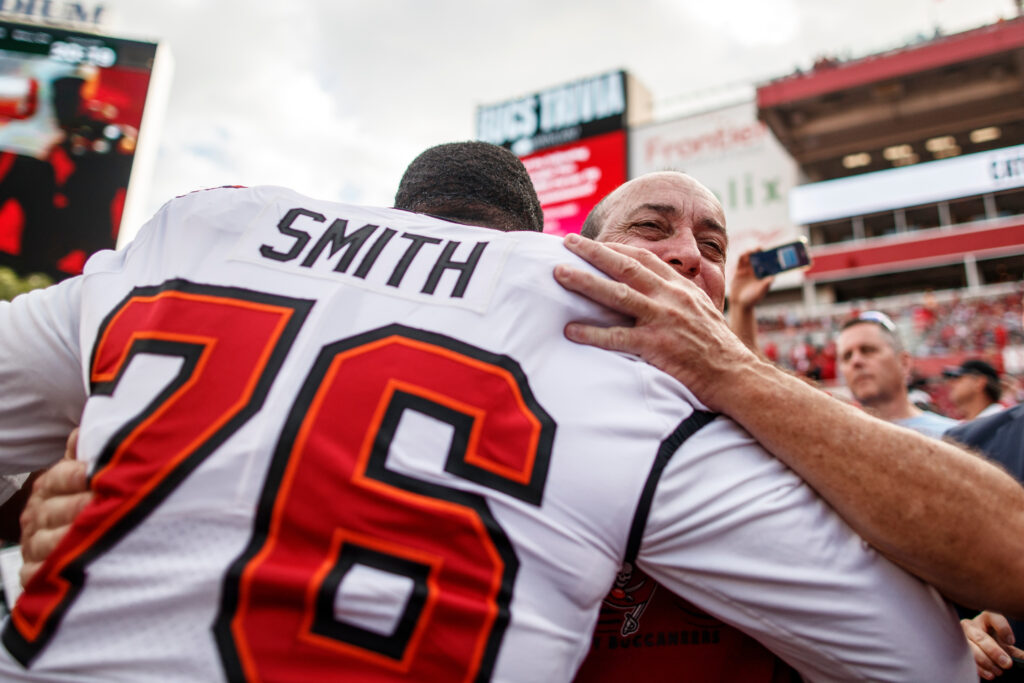Tampa Bay Buccaneers Surprise Exoneree Robert DuBoise With Custom Cleats
Offensive tackle Donovan Smith presented Mr. DuBoise, whom the team has supported since his exoneration, with the gift.
01.11.22 By Daniele Selby
Robert DuBoise enjoyed football growing up, but since being freed and exonerated in 2020, has developed a new relationship with the sport and his hometown team, the Tampa Bay Buccaneers.
On Sunday, the team gifted Mr. DuBoise during an ”Inspire Change” game against the Carolina Panthers with a pair of unique cleats inspired by his 37 years of wrongful imprisonment. The cleats, designed as part of the NFL’s “My Cause, My Cleats” campaign, bear Mr. DuBoise’s name and the number of years he spent wrongfully incarcerated. They were presented to Mr. DuBoise by Buccaneers offensive tackle Donovan Smith, who wore them at a practice ahead of the game.
“They really surprised me,” Mr. DuBoise said, adding that he’s a bigger football fan these days than he used to be, particularly of the Bucs. “It’s really cool.”
Such a special moment—thank you to the @Buccaneers for supporting Robert DuBoise & the fight for justice.
Robert spent 37 years in prison for a crime he didn't commit, but Florida's "clean hands ban" means he can't be compensated for his wrongful incarceration.
📹 : @NFLonCBS pic.twitter.com/OfvrmDQAdy
— The Innocence Project (@innocence) January 9, 2022
The cleats are also emblazoned with the phrase “clean hands” struck through by Nike’s signature swoosh, a recognition of the need to eliminate the “clean hands ban” that prevents Mr. DuBoise, and other exonerees, from being compensated for his nearly four decades of wrongful imprisonment. Printed on the shoes is “S.B. 526″ — the Senate bill that could finally change that.
Although Florida does offer compensation to wrongly convicted people, its law sets forth several conditions that make it incredibly difficult, if not impossible, for an exonerated person to actually receive compensation from the state. Since its compensation law was passed in 2008, only a few out of the dozens exonerated have been compensated.




It seems to me the state of Florida has a different view of crime whether it’s committed by the state or by an individual . It’s alright for the state to sentence a man to 37 years in prison for a crime he didn’t commit but the victim cannot be forgiven for the slightest peccadillo. Of course if he had money to buy a good attorney there wouldn’t be any problem. Is that compatible with democracy? H. Wicquart France